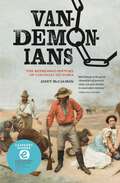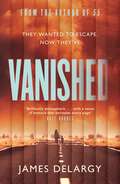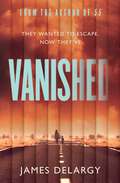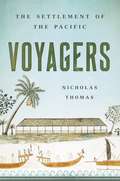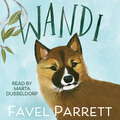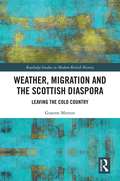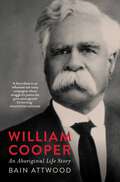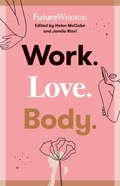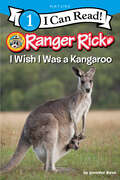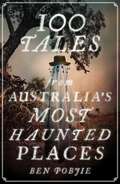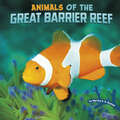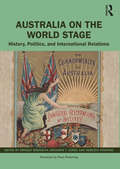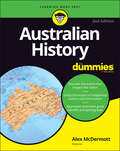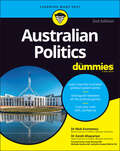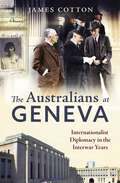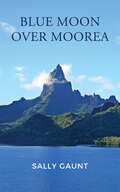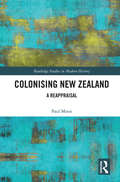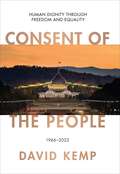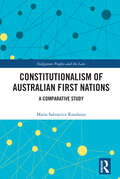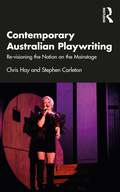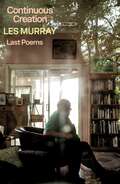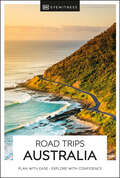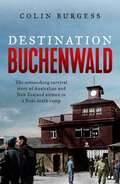- Table View
- List View
Un viaje tan pequeño: Novela de escape en la Nueva Caledonia
by Céline FuentesCuando la felicidad casi ha llegado, cuando el camino está trazado, y fuera la hora de cambiarlo todo… «La felicidad no está tan lejos. Elisa la toca con un dedo. Sin duda, su futuro se resolverá con la boda y el confeti y todo saldrá bien. Sin embargo, en medio de ese perfecto día de tranquilidad, ese miércoles trece de febrero de 2013, hacia las catorce horas cuarenta y cinco, cuando todavía está en la oficina, su móvil empieza a vibrar. Número desconocido». Elisa, en la treintena, no sabe que una llamada telefónica puede cambiar una vida. Al aceptar las increíbles oportunidades que le ofrecen, Elisa se embarca en un sorprendente viaje que la llevará a descubrir el Pacífico Sur, en la Nueva Caledonia
Vandemonians: The Repressed History of Colonial Victoria
by Janet McCalmanIt was meant to be 'Victoria the Free', uncontaminated by the Convict Stain. Yet they came in their tens of thousands as soon as they were cut free or able to bolt. More than half of all those transported to Van Diemen's Land as convicts would one day settle or spend time in Victoria. There they were demonised as Vandemonians. Some could never go straight; a few were the luckiest of gold diggers; a handful founded families with distinguished descendants. Most slipped into obscurity. Burdened by their pasts and their shame, their lives as free men and women, even within their own families, were forever shrouded in secrets and lies. Only now are we discovering their stories and Victoria's place in the nation's convict history. As Janet McCalman examines this transported population of men, women and children from the cradle to the grave, we can see them not just as prisoners, but as children, young people, workers, mothers, fathers and colonists. From the author of Struggletown and Journeyings, this rich study of the lives of unwilling colonisers is an original and confronting new history of our convict past-the repressed history of colonial Victoria.
Vanished
by James DelargyFrom the groundbreaking author of 55 comes an extraordinary new thriller... The Kane family, Lorcan, Naiyana and their young son, relocate from Perth to Kallayee, an abandoned mining town in the Great Victoria Desert to start over again, free from their chequered past. The town seems like the perfect getaway: Peaceful. Quiet. Remote. Somewhere they won&’t be found. But life in Kallayee isn&’t quite as straightforward as they hope. There are noises in the earth, mysterious shadows and tracks in the dust as if the town is coming back to life. But the family can&’t leave. No one can talk sense into them. And now, no one can talk to them at all. They&’ve simply vanished. Now it's up to Detective Emmaline Taylor to find them… before it&’s too late. ** Praise for Vanished ** &‘Delargy manages to turn the wide-open deserted Outback into something intensely claustrophobic and chilling&’ Russ Thomas &‘Intense, insightful and impossible to put down, Vanished is a gripping tale of greed and betrayal, burning with tension under a harsh Australian sun&’ Caz Frear 'Powered through this in two sittings. Vanished ratchets up the tension page after page, playing out in a perfect isolated setting with such a claustrophobic feel, and so vividly painted you could step right in' Rob Scragg 'There is menace on every page of this atmospheric thriller. An abandoned mining town in the Australian outback is the desolate - almost surreal - backdrop to a tale of a disintegrating family. Perfect for fans of The Dry' Jo Furniss, author of the Amazon Charts best-seller All The Little Children ** Praise for 55 ** &‘A pulse-pounding psycho-thriller . . . splendidly-engineered plot and a masterly sense of pace allied to a haunting background make for a powerful debut&’ Crime Time &‘A clever concept for this fast-moving debut, fleshed out with a sympathetic hero haunted by grim memories&’ Sunday Times Crime Club &‘Brilliantly atmospheric…with a sense of menace that pervades every page. Even more impressive than 55&’ Kate Rhodes 'Fabulously atmospheric, a splendid slice of outback noir for fans of Jane Harper. The intricately woven plot sucks you into a hostile world and keeps you sweating until the final page' Adam Southward 'A gripping race through the bleak Australian outback to find a missing family: Vanished captivated and intrigued me from page one' Louisa De Lange 'If you liked the Dry you will like this' 'I enjoy a good psychological thriller and this was up there with the best' &‘I loved this book from start to finish . . . the ending is still on my mind today&’ &‘A real page-turner. Gets a grip on you from the start. Best book I&’ve read in years!&’ &‘I found it impossible to tear myself away from this small, isolated community as they stumbled into a territory more hostile and unpredictable than any place on earth. LOVED IT&’
Vanished
by James DelargyFrom the groundbreaking author of 55 comes an extraordinary new thriller... Lorcan and Naiyana are desperate to move their young family far away from the hustle and bustle of modern city life.The abandoned town of Kallayee seems like the perfect getaway: no one has lived there for decades. It will be peaceful. Quiet. Secure.But life in Kallayee isn&’t quite as straightforward as they hope. Lights flicker at night. Car tracks appear in the dust even when the family hasn&’t driven anywhere. And six-year-old Dylan is certain he can hear strange sounds.Lorcan and Naiyana refuse to leave. No one can talk sense into them.And now, no one can talk to them at all.They&’ve simply vanished.Praise so far for Vanished: &‘Delargy manages to turn the wide-open deserted Outback into something intensely claustrophobic and chilling&’ Russ Thomas * * * Readers love 55 by James Delargy* * * &‘A pulse-pounding psycho-thriller . . . splendidly-engineered plot and a masterly sense of pace allied to a haunting background make for a powerful debut&’ Crime Time &‘A clever concept for this fast-moving debut, fleshed out with a sympathetic hero haunted by grim memories&’ Sunday Times Crime Club &‘Brilliantly atmospheric…with a sense of menace that pervades every page. Even more impressive than 55&’ Kate Rhodes 'Fabulously atmospheric, a splendid slice of outback noir for fans of Jane Harper. The intricately woven plot sucks you into a hostile world and keeps you sweating until the final page' Adam Southward 'A gripping race through the bleak Australian outback to find a missing family: Vanished captivated and intrigued me from page one' Louisa De Lange 'If you liked the Dry you will like this' 'I enjoy a good psychological thriller and this was up there with the best' &‘I loved this book from start to finish . . . the ending is still on my mind today&’ &‘A real page-turner. Gets a grip on you from the start. Best book I&’ve read in years!&’ &‘I found it impossible to tear myself away from this small, isolated community as they stumbled into a territory more hostile and unpredictable than any place on earth. LOVED IT&’
Voyagers: The Settlement of the Pacific
by Nicholas ThomasAn award-winning scholar explores the sixty-thousand-year history of the Pacific islands in this dazzling, deeply researched account. The islands of Polynesia, Melanesia, and Micronesia stretch across a huge expanse of ocean and encompass a multitude of different peoples. Starting with Captain James Cook, the earliest European explorers to visit the Pacific were astounded and perplexed to find populations thriving thousands of miles from continents. Who were these people? From where did they come? And how were they able to reach islands dispersed over such vast tracts of ocean?In Voyagers, the distinguished anthropologist Nicholas Thomas charts the course of the seaborne migrations that populated the islands between Asia and the Americas from late prehistory onward. Drawing on the latest research, including insights gained from genetics, linguistics, and archaeology, Thomas provides a dazzling account of these long-distance migrations, the seagoing technologies that enabled them, and the societies they left in their wake.
Wandi
by Favel ParrettA young cub is snatched from his family and home by a giant eagle, then dropped, injured and alone, in a suburban garden. This is where he meets his first Human, and begins his long journey to becoming the most famous dingo in the world. He will never see his mountain home again, or his family. But it is his destiny to save alpine dingoes from extinction, and he dreams of a time when all cubs like him can live in the wild in safety, instead of facing poison and bullets and hatred. A children's literary classic in-the-making from one of Australia's most-loved authors is brought to life by Helpmann and AACTA award-winning actress Marta Dusseldorp.
Weather, Migration and the Scottish Diaspora: Leaving the Cold Country (Routledge Studies in Modern British History)
by Graeme MortonWhy did large numbers of Scots leave a temperate climate to live permanently in parts of the world where greater temperature extreme was the norm? The long nineteenth century was a period consistently cooler than now, and Scotland remains the coldest of the British nations. Nineteenth-century meteorologists turned to environmental determinism to explain the persistence of agricultural shortage and to identify the atmospheric conditions that exacerbated the incidence of death and disease in the towns. In these cases, the logic of emigration and the benefits of an alternative climate were compelling. Emigration agents portrayed their favoured climate in order to pull migrants in their direction. The climate reasons, pressures and incentives that resulted in the movement of people have been neither straightforward nor uniform. There are known structural features that contextualize the migration experience, chief among them being economic and demographic factors. By building on the work of historical climatologists, and the availability of long-run climate data, for the first time the emigration history of Scotland is examined through the lens of the nation’s climate. In significant per capita numbers, the Scots left the cold country behind; yet the ‘homeland’ remained an unbreakable connection for the diaspora.
William Cooper: An Aboriginal Life Story
by Bain AttwoodWilliam Cooper's passionate struggle against the dispossession of Aboriginal people and the denial of their rights and his heroic fight for them to become citizens in their own country has been widely commemorated and celebrated. By carefully reconstructing the historical losses his Yorta Yorta people suffered and endured, William Cooper: An Aboriginal Life Story reveals how the first seventy years of Cooper's life inspired the remarkable political work he undertook in the 1930s. Focusing on Cooper's most important campaigns-his famous petition to the British king George for an Aboriginal representative in the Australian parliament, his call for a day of mourning after 150 years of colonisation, the walk-off of the Yorta Yorta people from Cumeroogunga reserve in 1939 and his opposition to the establishment of an Aboriginal regiment in the Second World War-this carefully researched study sheds important new light on the long struggle that Indigenous people have fought to have the truth about Australia's black history heard and win representation in Australia's political order.
Work. Love. Body.: Future Women
by Helen McCabe Jamila RizviIn 2020, the lives of Australian women changed irrevocably. With insight, intelligence and empathy, Jane Gilmore, Santilla Chingaipe and Emily J. Brooks explore this through the lenses of work, love and body, and ask: Will the Australia of tomorrow be more equal than the one we were born into? Or will women and girls remain left behind?While our country was shrouded in smoke in the early months of 2020, Australian women went about their daily business. They worked, studied, cleaned, did school runs, made meals. And they postponed looking after themselves because life got in the way.Then, in March, Australians were told to lock down. For all the talk of equality, it was primarily women who held the health of our communities in their hands as they took on the essential jobs to care, to nurse and to teach, despite an invisible danger. One year later, women across the country would march on behalf of those who were not safe in workplaces and their own homes.Never before has change been thrust so abruptly on modern Australian women - 2020 impacted our working lives, relationships and our health and wellbeing. And as a growing number of women agitate for change, it is time to demand what women want. So where do we go from here?One thing is very clear: the future is now, and it is female.
Ranger Rick: I Wish I Was a Kangaroo (I Can Read Level 1)
by Jennifer BovéExplore the lives of kangaroos with Ranger Rick in this Level One I Can Read with vivid color photos!What if you wished you were a kangaroo and then you became one? Could you eat like a kangaroo? Move like a kangaroo? Live in a kangaroo family? And would you want to? Find out!This Level One I Can Read answers questions for beginning readers about kangaroos. This format engages young readers by comparing and contrasting the life of the kangaroo to the life of the reader. In call-outs, Ranger Rick asks the reader things like: Can you hop like a kangaroo?Did you know that some kangaroos are great swimmers? Did you know that kangaroos are really fast and can hop up to 40 miles per hour? From Tree Kangaroos to the Rock Wallaby to the more familiar Red Kangaroos, young Ranger Rick explorers will love this Level One I Can Read that helps beginning readers dig a little deeper into the amazing lives of kangaroos.Ranger Rick: I Wish I Was a Kangaroo is complete with fascinating facts, vivid photographs, a Wild Words glossary, and a hands-on activity where you find out how far you can jump—just like a kangaroo!This Level 1 I Can Read story is perfect for children ages 5 to 7 who are ready to read independently. Whether shared at home or in a classroom, the short sentences, familiar words, and simple concepts of Level One books support success for children eager to start reading on their own.
100 Tales from Australia's Most Haunted Places
by Ben PobjieFrom the ghostly black horse of Sutton Forest to the butcher of Adelaide Street, a haunted Brisbane lift to the chilling experiments carried out by Doctor Blood of the North Kapunda Hotel, Australia abounds in spooky stories that are all unnervingly based in fact and tied to real places you can visit or avoid. In 100 Tales from Australia's Most Haunted Places, comedy writer and general scaredy-cat Ben Pobjie communes with the spirit world to send a shiver down your spine. A book best read with the light left on.
100 Tales from Australia's Most Haunted Places
by Ben PobjieFrom the ghostly black horse of Sutton Forest to the butcher of Adelaide Street, a haunted Brisbane lift to the chilling experiments carried out by Doctor Blood of the North Kapunda Hotel, Australia abounds in spooky stories that are all unnervingly based in fact and tied to real places you can visit or avoid. In 100 Tales from Australia's Most Haunted Places, comedy writer and general scaredy-cat Ben Pobjie communes with the spirit world to send a shiver down your spine. A book best read with the light left on.
Animals of the Great Barrier Reef (Wild Biomes)
by Martha E. RustadBiomes are home to unique animals and plants. Introduce beginning readers to the Great Barrier Reef! Readers will get an up-close look at the characteristics of the reef and how corals, fish, anemones, rays, birds, and other animals have adapted to life in and around this amazing biome.
Australia on the World Stage: History, Politics, and International Relations
by Benjamin T. Jones Rebecca Strating Bridget BrooklynAustralia on the World Stage: History, Politics, and International Relations offers a fresh examination of Australia’s past and present. From the complex interactions of First Nations to modern international relations with significant partners and allies, it examines the forces that have influenced the place now called Australia both historically and today. It is a unique history told in two parts. The first half of the book examines the way Australia acted on the world stage both before and after British colonisation. It outlines the evolution of Australia’s relationship with the United Kingdom, first as colonies, then a dominion, and finally as an independent nation. It finishes with a First Nations perspective on foreign relations. The second half of the book provides a wide-ranging history of Australia’s dealings with major powers, the United States and China, as well as its relationships with New Zealand, Aotearoa, the Pacific Islands, Indonesia, Japan, Antarctica, and the United Nations. Written by leading and emerging researchers in their fields, this book encourages the reader to consider Australia’s performance on the world stage over the longue durée, well before the word ‘Australia’ was ever dreamt up. This interdisciplinary work challenges lazy stereotypes that see Australia's international history as fixed and uncontested. In revisiting Australia’s foreign relations, this work also asks the reader to consider its future directions.
Australian History For Dummies
by Alex McDermottExplore the land down under with your friends at Dummies Australia might be most famous for kangaroos, koalas, friendly people, and decidedly unfriendly critters (like the black widow spider, yikes!), but did you know that its government was dismissed by the British Crown in 1975? Or that human beings have lived on the continent for around 65,000 years? In Australian History For Dummies, you???ll discover all that ??? and more ??? as you discover the history of Indigenous Australians, colonial explorers, and the modern inhabitants of one of the most fascinating nations, islands, and continents in the world today!
Australian Politics For Dummies
by Zareh Ghazarian Nick EconomouUnderstand Aussie politics and make your vote count! Australian Politics For Dummies gives you a helping hand as you get to grips with the good, the bad and the ugly of Australian politics. Seasoned political punters and voting novices alike will find fascinating facts and top thrills in in this essential guide. Master the ins and outs of elections, parties and policies. In no time, you'll be discussing and debating the biggest issues with ease. Down under, we all have to vote. It's one of the many beautiful things about this land of ours, and this book will help you learn why (and how) to cast that ballot. This updated edition gives you everything you need to cast your vote with confidence. You'll identify what makes the Australian political system tick, distinguish between the different political parties and understand the influence of the media in Australian politics. Decipher political terminology, make sense of the houses of parliament and understand why we have minor parties Learn how Australia's political system evolved and grasp today's voting systems Make sense of coalition politics and figure out the differences between the Labor and Liberal parties Find out why Australia's system of government is described as 'Washminster,' and discover the Whips and the Usher of the Black Rod You want to know more about Australian politics, but, if we're being realistic, it's very complicated. Australian Politics For Dummies clears it all up.
Australians at Geneva: Internationalist Diplomacy in the Interwar Years
by James CottonAfter the dubious justice of the Treaty of Versailles and the turmoil of the interwar years, the League of Nations is mainly remembered as a body that failed to create mechanisms that might have forestalled the horrors of Nazism, fascism and the Second World War. It has understandably been overshadowed by the United Nations, that larger, more globally representative body which grew from the League, and which was founded on more unequivocally noble principles in the aftermath of a clear-cut victory of good over evil. But as the limitations of the United Nations become ever more apparent, we can look with more sympathy at the League and consider what we might learn from the endeavours of those driving this first attempt at global governmental coordination. As James Cotton relates in this illuminating account, a surprising number of Australians lent their talents and enthusiasm to this internationalist project, and Australian interests were prominently represented. Former Prime Minister Stanley Bruce was there, along with numerous other Australian men and women who made important contributions to international deliberations on questions of global organisation and interaction. This deeply researched and carefully realised story will recast understandings of both the League itself and the place within it of prominent interwar Australian internationalists.
Blue Moon Over Moorea
by Sally GauntIn Blue Moon over Moorea, an anthology of poems by Australian lawyer and poet Sally Gaunt, the author mines some of her favourite themes to remarkable effect. Water in all its forms proves a constant inspiration, from ‘Swimming with Seahorses’ to the rapt, almost hallucinatory images of the title poem. Gaunt breathes new life into verse written for the reading community and brings a sharp eye and wry humour to the perennial subjects of love, sex and death. Many of the poems are boldly imaginative recreations of historical events, typically centred on the sea, while the cycle of feather poems that opens the book considers the concept of manhood versus mayhem in a social setting.
Colonising New Zealand: A Reappraisal (Routledge Studies in Modern History)
by Paul MoonColonising New Zealand offers a radically new vision of the basis and process of Britain’s colonisation of New Zealand. It commences by confronting the problems arising from subjective and ever-evolving moral judgements about colonisation and examines the possibility of understanding colonisation beyond the confines of any preoccupations with moral perspectives. It then investigates the motives behind Britain’s imperial expansion, both in a global context and specifically in relation to New Zealand. The nature and reasons for this expansion are deciphered using the model of an organic imperial ecosystem, which involves examining the first cause of all colonisation and which provides a means of understanding why the disparate parts of the colonial system functioned in the ways that they did. Britain’s imperial system did not bring itself into being, and so the notion of the Empire having emerged from a supra-system is assessed, which in turn leads to an exploration of the idea of equilibrium-achievement as the Prime Mover behind all colonisation—something that is borne out in New Zealand’s experience from the late eighteenth century. This work changes profoundly the way New Zealand’s colonisation is interpreted, and provides a framework for reassessing all forms of imperialism.
Consent of the People: Human Dignity through Freedom and Equality
by David KempConsent of the People: Human Dignity through Freedom and Equality 1966-2022 explores how Australia's founding Enlightenment ideals were shaped into a unique national liberalism, embodied in liberal democratic institutions, political parties and shared values. Despite intense partisan loyalties, conservative and radical resistance, and a politics of unequal power and influence, inequality was addressed and personal freedom strengthened. This final book in the landmark, five-volume Australian Liberalism series examines the place of liberal ideas in governments from Harold Holt to Scott Morrison. It shows how reform urgency led to the nation's greatest political crisis in 1975, how prime ministers Fraser and Hawke struggled to manage an economy dominated by powerful union, business and global interests, how during twenty-four crucial years Hawke, Keating and Howard led one of the nation's greatest reform eras, and how social reform continued despite the leadership instability of the post-Howard era. David Kemp assesses political parties as the instruments of reform, and the difficulties of achieving reform in the public interest, highlighting the dangers of factionalism and loss of purpose. He examines how an international revival of liberal thought and rising levels of education revolutionised Australian society and politics, creating a moral-and moralistic-ruling class. In a remarkable half-century Australians strove, with growing success, to achieve their dreams.
Constitutionalism of Australian First Nations: A Comparative Study (Indigenous Peoples and the Law)
by Maria Salvatrice RandazzoThe book considers Australian First Nations constitutionalism by drawing on the chthonic constitutional traditions of three distinct Australian First Nations legal orders: the Warlpiri, Yolngu, and Pintupi legal orders, in the endeavour of identifying, via a comparative analysis, a core of similarities to be drawn upon and articulate an emergent legal theory common to the three legal orders. The comparative analysis is undertaken at the most foundational levels of their legal traditions, via the prism of a legal paradigm elaborated with reference to an Australian Indigenous cosmological, ontological, and epistemological standpoint. The proposed legal theory comprises a broad overview, general concepts, normative principles, and general working principles. In so doing, the book expounds how Australian First Nations constitutionalism unfolds into holistic orders of spiritual, political, and legal authority that are explainable in terms of legal theory. At the most foundational level, such elaboration may help delineate normative and legal constitutional patterns throughout Indigenous Australia.
Contemporary Australian Playwriting: Re-visioning the Nation on the Mainstage
by Stephen Carleton Chris HayContemporary Australian Playwriting provides a thorough and accessible overview of the diverse and exciting new directions that Australian Playwriting is taking in the twenty-first century. In 2007, the most produced playwright on the Australian mainstage was William Shakespeare. In 2019, the most produced playwright on the Australian mainstage was Nakkiah Lui, a Gamilaroi and Torres Strait Islander woman. This book explores what has happened both on stage and off to generate this remarkable change. As writers of colour, queer writers, and gender diverse writers are produced on the mainstage in larger numbers, they bring new critical directions to the twenty-first century Australian stage. At a politically turbulent time when national identity is fractured, this book examines the ways in which Australia’s leading playwrights have interrogated, problematised, and tried to make sense of the nation. Tracing contemporary trends, the book takes a thematic approach to the re-evaluation of the nation that is dramatized in key Australian plays. Each chapter is accompanied by a duologue between two of the playwrights whose work has been analysed, to provide a dual perspective of theory and practice.
Continuous Creation: Last Poems
by Les MurrayThe final collection of poems by the great Australian poet Les Murray, Continuous CreationWe bring nothing into this worldexcept our gradual abilityto create it, out of all that vanishesand all that will outlast us.In Continuous Creation, the final collection from Les Murray, the preeminent poet of modern Australia recalls moments from his youth and wryly observes the changing world, moving back and forth through time and history with characteristic curiosity and an ever-fresh commitment to capturing the rhythms of life in verse. This collection displays Murray’s miraculous ability to reinvent language in order to plant his and our reality on the page, whether he writes about the Australian landscape (“Kangaroo sleeping / ahead on the road turns out / to be twigs and leaves”) or unsold books sitting in department stores.Continuous Creation demonstrates, once more, that Murray was one of the great poets of the English language. As Joseph Brodsky said, he was, “quite simply, the one by whom the language lives.”
DK Eyewitness Road Trips Australia (Travel Guide)
by DK EyewitnessWith its ever-changing landscapes, Australia is the perfect destination for a leisurely road trip. It's yours to explore with Road Trips Australia, our redesigned and newly updated guide containing 22 drives across the country, from the coastal roads of the southwest to the red-dirt tracks of the outback.Packed with insider tips and information, this easy-to-use guide reveals Australia at its best: spectacular sights, hidden gems and authentic local experiences. We've also worked hard to make sure our information is as up-to-date as possible following the COVID-19 outbreak. DK Eyewitness Road Trips Australia is your ticket to the trip of a lifetime. Inside DK Eyewitness Road Trips Australia you will find: - 22 easy-to-follow driving tours, each lasting one to seven days- A laminated pull-out road map of Australia helping you navigate with ease- Walks, delightful detours and activities to do along the way, plus you'll savor the best local -experiences with our pick of the most authentic places to stay, eat and shop- Practical tips: rules of the road, detailed directions and driving tips- Detailed maps and walks to help you navigate the country easily and confidently - Covers: Queensland, the Northern Territory, South Australia, Victoria, Tasmania and moreAbout DK Eyewitness: At DK Eyewitness, we believe in the power of discovery. We make it easy for you to explore your dream destinations. DK Eyewitness travel guides have been helping travelers to make the most of their breaks since 1993. Filled with expert advice, striking photography and detailed illustrations, our highly visual DK Eyewitness guides will get you closer to your next adventure. We publish guides to more than 200 destinations, from pocket-sized city guides to comprehensive country guides. Named Top Guidebook Series at the 2020 Wanderlust Reader Travel Awards, we know that wherever you go next, your DK Eyewitness travel guides are the perfect companion.
Destination Buchenwald: The astonishing survival story of Australian and New Zealand airmen in a Nazi death camp
by Colin BurgessThe harrowing story of the Allied airmen who experienced the true horrors of Nazism firsthand. It was the summer of 1944 as liberating Allied forces surged towards Paris following the D-Day landings. For a large group of downed airmen being held in that city&’s infamous Fresnes Prison, they were about to face evacuation into the blackest, bloody heart of Germany and experience the most acute evil of the war. Amid great secrecy, those 168 airmen – including several from Australia and New Zealand – were transported on a filthy, overcrowded nightmare train journey which ended at the notorious Buchenwald concentration camp, accompanied by orders for their execution. At Buchenwald they witnessed extreme depravity that would haunt them to the end of their days. Yet, on returning home, they were confronted by decades of denials from their own governments that they had ever been held in one of Hitler&’s most vile concentration camps. In conducting his original deep research for this book – now completely expanded and updated – Colin Burgess personally interviewed or corresponded with dozens of the surviving airmen from a number of nations, including their valorous leader, New Zealand Squadron Leader Phil Lamason. Destination Buchenwald tells a compelling story of extraordinary bravery, comradeship and endurance, when a group of otherwise ordinary servicemen were thrust into an unimaginable Nazi hell. 'This was the first book to provide an insight into our experiences as a group of captured allied airmen, betrayed to the Gestapo, tortured and deported to Buchenwald concentration camp. I consider it to be one of the best interpretations of the events as it reflects the voices of the survivors and their challenges to stay alive in such dehumanising circumstances.' Sqn Ldr Stanley Booker, RAF (Rtd.), MBE, Légion D'Honneur: Last surviving member of the Buchenwald airmen

